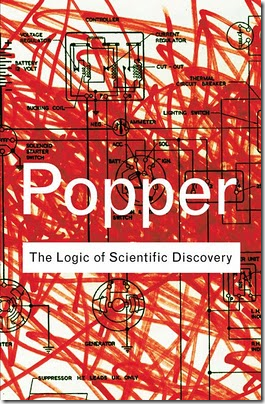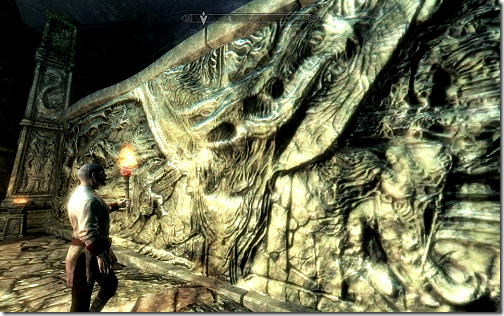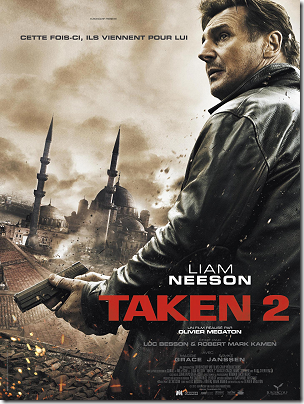
Link: The Logic of Scientific Discovery
I have started reading Karl Popper’s The Logic of Scientific Discovery. As I mentioned on my other blog and in my short AI research journal, I seek to create Strong AI, and I think Popper’s work may have some useful insights. (For the moment, I seek to create a system that can teach itself to play any rule-based game, such as chess. Humans can do it, so there must be a way to program a computer to do it.) I have already gained useful insights by reading the first 90 pages of Popper’s book Objective Knowledge, and certainly there is some overlap between that book and this. But I have, for the moment, halted my reading of Objective Knowledge in favor of this volume.
Interestingly, when I Google information on Karl Popper, he seems to have some atheist followers, which I find strange. From the what I’ve read so far (which admittedly isn’t much), he never says anything that should cast doubt on theism in and of itself. Popper would very much disagree with Ayn Rand’s atheist epistemology, for example, or at least her attempt at forming one. Perhaps this is part of the larger blindness among certain atheists who cannot understand how logic and science are not only compatible with belief in a deity, but dependent on it. “If it has to do with science, then it must support my atheism, because science and God are incompatible ideas!” one might claim. But I don’t have much else to say on this subject because it is boring, like arguing with a child who refuses to believe letters mean anything just because he can’t read, and so develops no system with which to recognize them.
What follows are just summaries of my understandings and thoughts on various sections. I don’t claim to be an expert, so feel free to correct me if you think I understand Popper wrongly. I certainly admit I am not always sure what the man is trying to say. I am not a well-read philosophy student by any means, so many times his writings are a bit complicated for me.
Chapter 1: A survey of some problems
Section 1: The problem of induction
Popper gives a solution to the “problem” of induction. (He discusses it in more depth in Objective Knowledge.) A classic example of the problem of induction goes like this: I see a bunch of white swans. I therefore think, “All swans are white!” Later, I see a black swan. My theory that all swans are white is obviously shown to be false. So if I am creating knowledge from observations, how can I really know anything? (See the Wikipedia article on the subject for more detail.) Popper’s solution (from what I can understand): When I say, “All swans are white!” I am creating a theory, based not only on my observations (certainly the observations have to fit my theory), but also on the belief that there is a grander truth to what I am observing. I cannot say that I know all swans are white; I cannot generalize the color of all swans based only on those I have seen. “All swans are white” was never really knowledge to begin with, so there is no problem when the theory is refuted.
Popper makes a distinction between “psychology of knowledge” and “logic of knowledge.”
From page 7:
I must first make a clear distinction between the psychology of knowledge which deals with empirical facts, and the logic of knowledge which is concerned only with logical relations. For the belief in inductive logic is largely due to a confusion of psychological problems with epistemological ones.
Section 2: Elimination of psychologism
As Popper says on page 7:
The question of how it happens that a new idea occurs to a man … may be of great interest to empirical psychology; but it is irrelevant to the logical analysis of scientific knowledge.
That is, the question of how one creates a theory and how one corrects a refuted theory (which I attempted to answer in my aforementioned journal) are two different subjects, and how one creates a theory is of far less interest here.
On page 8, Popper writes:
… my view on the matter … is that there is no such thing as a logical method of having new ideas, or a logical reconstruction of this process.
I both agree and disagree with Popper here, and I wish he were alive so I could ask him to elaborate on what exactly he means here. (Though if he were alive, I’m sure I’d be too intimidated to ask, and too much of a nobody to get an answer if I wasn’t.) There must be some logic to how a new idea is formed, though it may not be logical in the sense that every new idea is formed with the same logic. There is probably something personal about the logic we’re using, and it may change as often as the ideas themselves.
This is important because if I want to create a computer program that teaches itself to play chess, for instance, I must obviously create a system in which chess knowledge can be created. This should not be taken for granted just because we humans can do it without understanding how we do it.
Section 3: Deduction testing of theories
Popper mentions four “lines” of deductive testing:
1. Is the theory internally consistent? Seems obvious, but complicated theories may imply paradoxes based on internal inconsistencies.
2. What does the theory claim that can be refuted?
3. How does the theory compare with other theories? Does one explain more than the other? Is one more refutable than the other?
4. What are the results of our testing of the implications (or predictions) of the theory? Do they refute our theory?
I think these are all sort of sides of the same coin. The point is that our theory only gets closer to the truth when it is refuted and corrected.
Section 4: The problem of demarcation
Popper writes on page 11:
The problem of finding a criterion which would enable us to distinguish between the empirical sciences on the one hand, and mathematics and logic as well as ‘metaphysical’ systems on the other, I call the problem of demarcation.
This section was kind of over my head, perhaps because I don’t see how it could be useful for my purposes. My guess is that he’s trying to ask how we can know whether a theory predicts something that can be tested and refuted, or whether its implications can only ever be intangible.
I was intrigued by what he writes on page 16:
For it cannot be denied that along with metaphysical ideas which have obstructed the advance of science there have been others—such as speculative atomism—which have aided it. And looking at the matter from the psychological angle, I am inclined to think that scientific discovery is impossible without faith in ideas which are of a purely speculative kind, and sometimes even quite hazy; a faith which is completely unwarranted from the point of view of science, and which, to that extent, is ‘metaphysical’.
I, again, both agree and disagree with Popper here, because he’s not being very specific. What is “speculative”? What is “unwarranted”? I think all ideas a man can have are warranted somehow, even if based on a mistake, a decision to have faith in one thing rather than another.
I would say that scientific discovery is impossible without desire, a person with a goal to understand or achieve some specific thing, which cannot come from the logic of science itself, but contains it and works with it and through it. That is, logic and science are a means to an end, and do not provide a system with which to create a means to an end. (Science does not create itself.)
Section 5: Experience as a method
I’m not quite sure what Popper is saying in this section. My guess is that he’s simply establishing that an experience is what we use as a method to test a theory.
Conclusion
Obviously, I’m not very far into the book yet. I am very intrigued by it, though quite a bit of it is over my head. Granted, I’m not trying to understand it for its own sake, but looking for ideas that I can use in my own AI research. I think Popper tends to go too deeply into subjects I am not as interested in as he discusses the ideas of other philosophers, whereas I am trying to apply all this philosophy to something very concrete: a computer program.
Anyway, I’ll keep reading.















